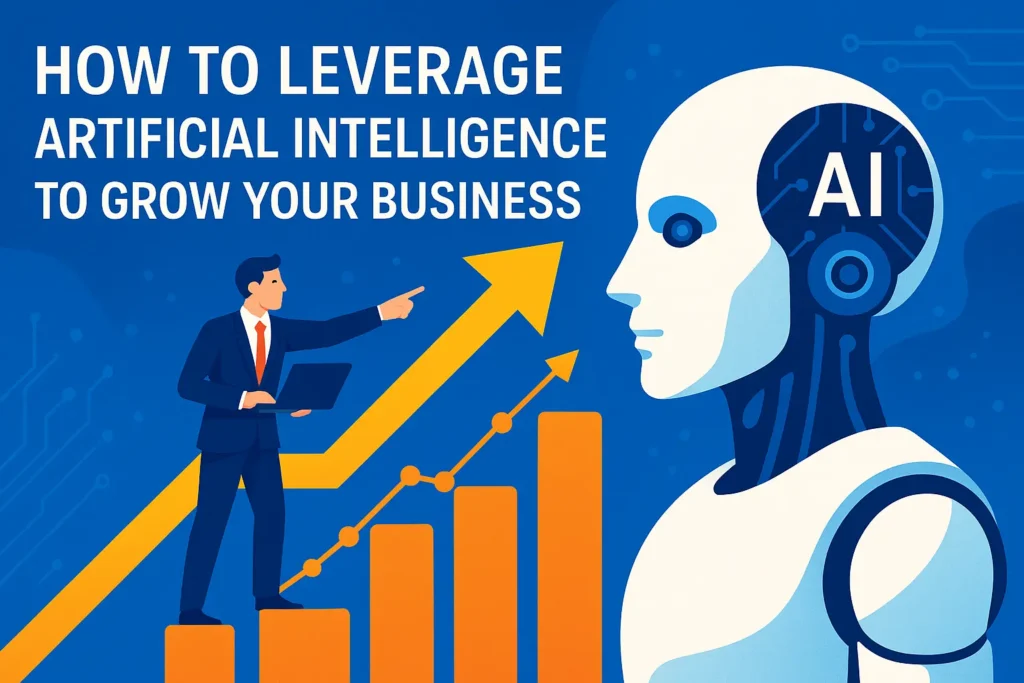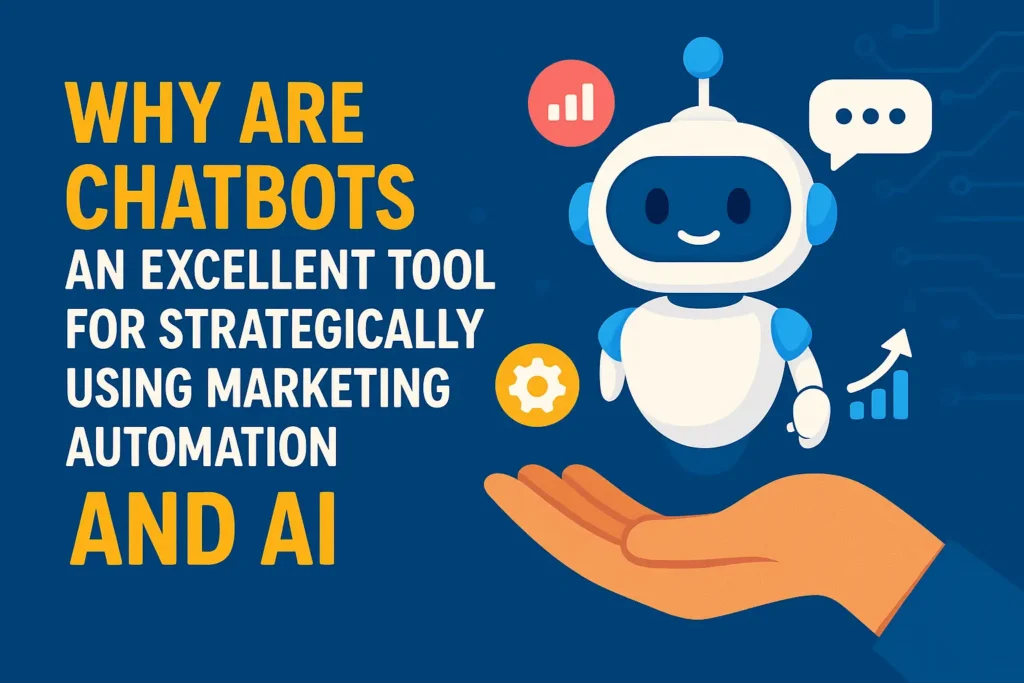Artificial Intelligence (AI) is no longer a futuristic concept—it’s already transforming the digital marketing landscape. From automating repetitive tasks to enhancing customer personalisation and enabling predictive analytics, AI is reshaping how marketers strategise, engage, and convert.
In this blog, we’ll explore the specific marketing behaviours that AI is elevating, complete with real-world statistics and use cases to help you understand its growing impact.
Customer Segmentation & Personalisation
One of the most profound ways AI benefits marketing is through hyper-personalised customer experiences and more intelligent segmentation.
How AI Helps
AI analyses behavioural, demographic, and psychographic data to create micro-segments and tailor real-time messaging.
Stats
- According to Salesforce, 76% of consumers expect companies to understand their needs and expectations.
- A report by McKinsey found that companies using personalisation generate 40% more revenue than those that don’t.
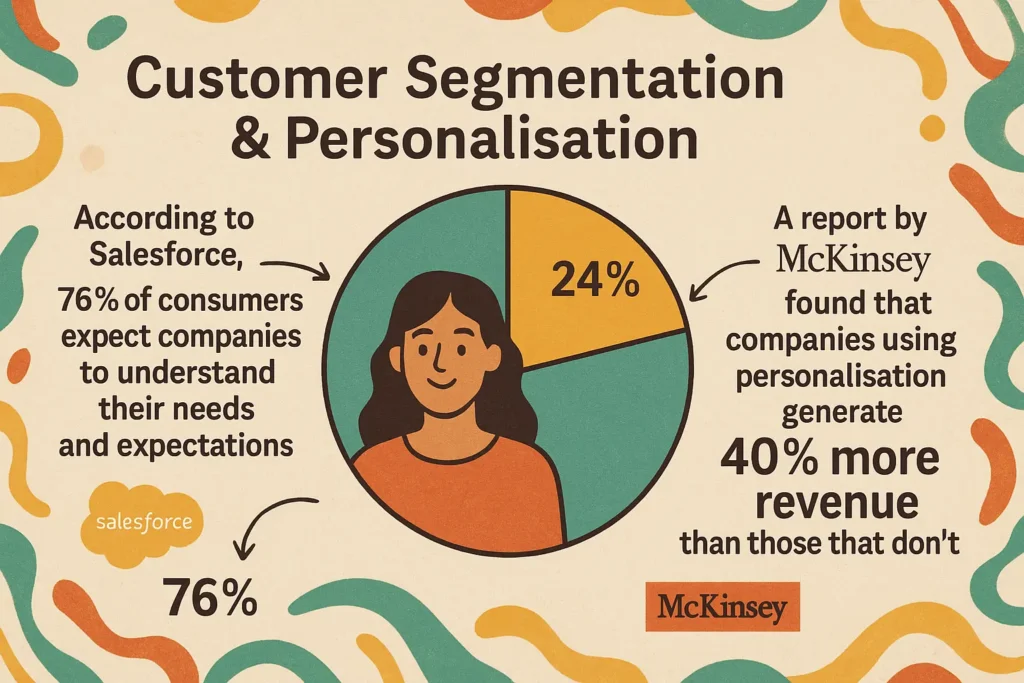
Real-World Use Case
Amazon uses AI-driven algorithms to recommend products based on user behaviour and browsing history, contributing 35% of its revenue through upselling and cross-selling.
Predictive Analytics for Lead Scoring & Conversion
AI empowers marketers to predict future customer behaviours based on historical data, enabling more intelligent decision-making.
How AI Helps
By analysing data from CRMs, email campaigns, and customer interactions, AI can assign lead scores and forecast conversions, helping teams prioritise high-value prospects.
Stats
- According to Forrester Research, companies using predictive analytics for marketing see a 20% increase in sales opportunities.
- EverString reported that 83% of high-performing marketers use AI to identify high-value accounts.
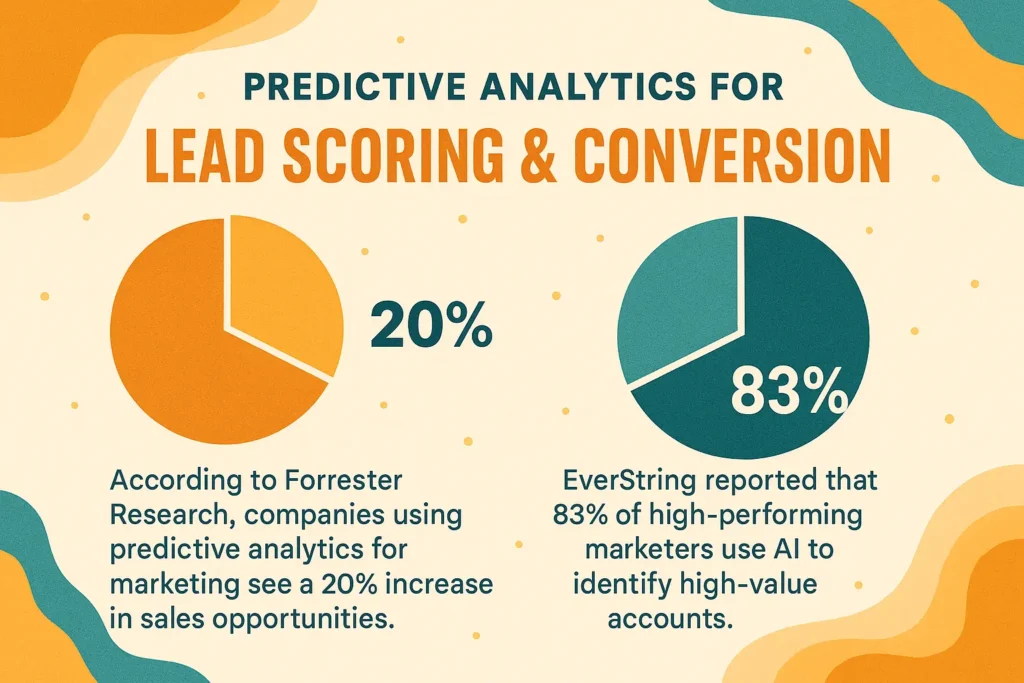
Real-World Use Case
HubSpot’s AI features offer predictive lead scoring, significantly improving their clients’ sales efficiency and conversion rates.
Content Creation & Optimisation
AI isn’t just about crunching numbers—it’s now capable of generating engaging, human-like content and optimising it for SEO.
How AI Helps
Tools like Chatgpt, Jasper, and Copy.ai can assist marketers in writing blog posts, social media captions, email subject lines, and more. AI can also A/B test content and provide SEO insights.
Must Read: Mastering ChatGPT Prompt Engineering
Stats
- Gartner predicts that by 2025, 30% of outbound marketing messages from large organisations will be synthetically generated by AI.
- Semrush found that marketers using AI content tools see a 2.5x higher ROI than traditional methods.
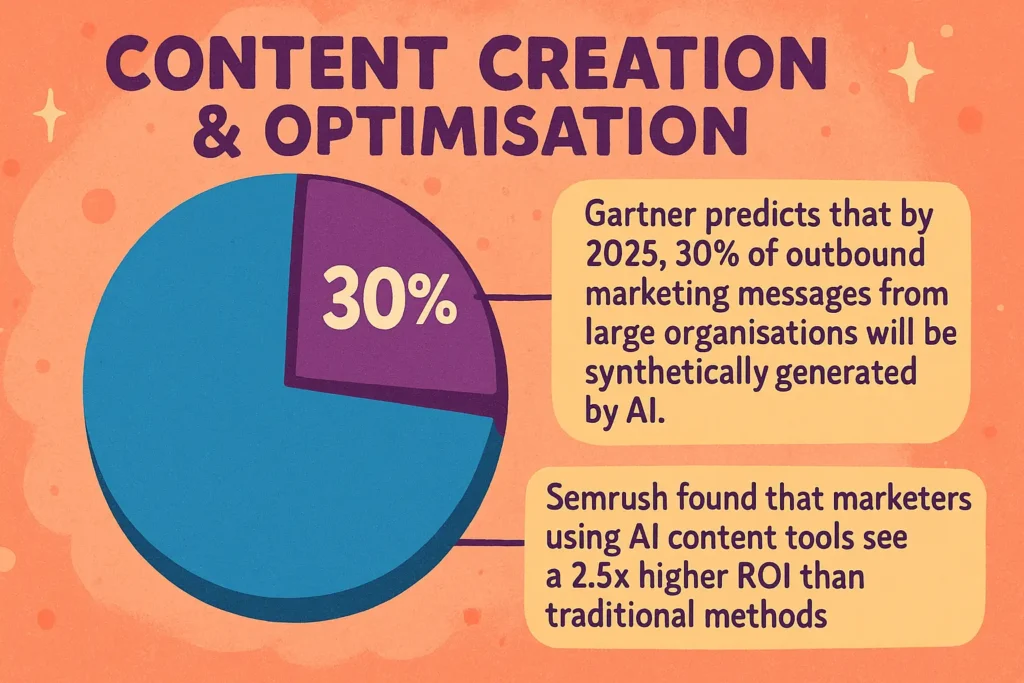
Real-World Use Case
The Associated Press uses AI to generate over 3,000 financial reports every quarter—an output that would be impossible manually.
Programmatic Advertising
Programmatic advertising uses AI to buy automatically and place ads based on user data and real-time bidding.
How AI Helps
In milliseconds, AI can evaluate hundreds of variables (location, device, browsing behaviour, time of day) to serve the most relevant ad to the right audience.
Stats
- According to Statista, in 2023, 86% of digital display ads in the U.S. were transacted via programmatic technology.
- eMarketer forecasts global programmatic ad spend to reach $725 billion by 2026.
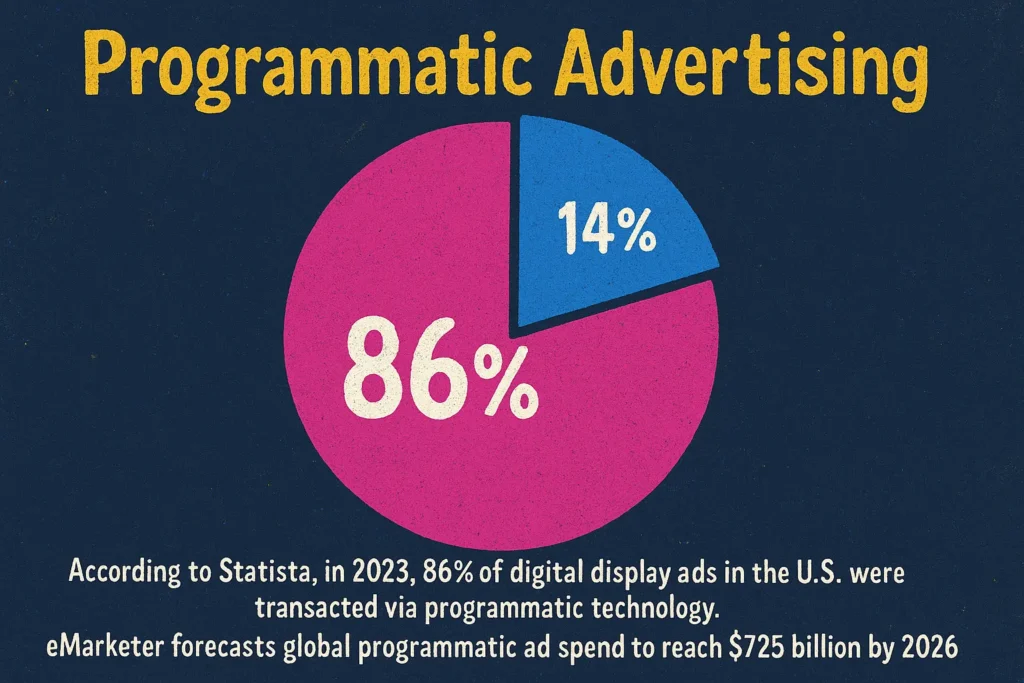
Real-World Use Case
Google’s AI-powered ad platform automatically optimises campaigns, resulting in a 20% increase in conversion rates for many businesses.
Chatbots & Conversational Marketing
AI-driven chatbots are redefining customer service and real-time engagement, allowing brands to be available 24/7.
How AI Helps
AI chatbots can handle FAQs, guide users through a sales funnel, schedule demos, and escalate issues to human agents.
Stats
- IBM estimates that businesses can save up to 30% in customer support costs with AI chatbots.
- Drift found that 55% of businesses using chatbots generate more high-quality leads.
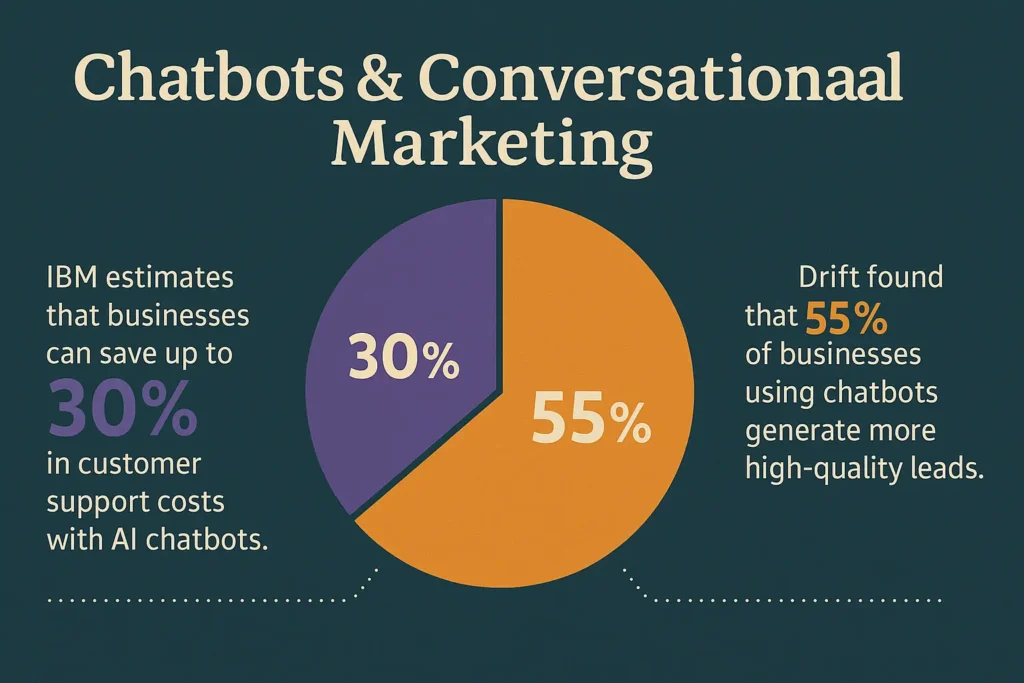
Real-World Use Case
Domino’s uses a chatbot named “Dom” to order, which accounts for over 50% of their digital sales.
Email Marketing Automation
AI elevates email marketing from bulk messaging to behaviour-driven, personalised journeys.
How AI Helps
AI can craft subject lines that are more likely to be opened, optimise send times for higher engagement, and segment audiences based on behaviours and lifecycle stages.
Stats
- Campaign Monitor shows that personalised email campaigns deliver 6x higher transaction rates.
- Litmus reports that marketers using AI for email marketing experience a 41% increase in revenue.
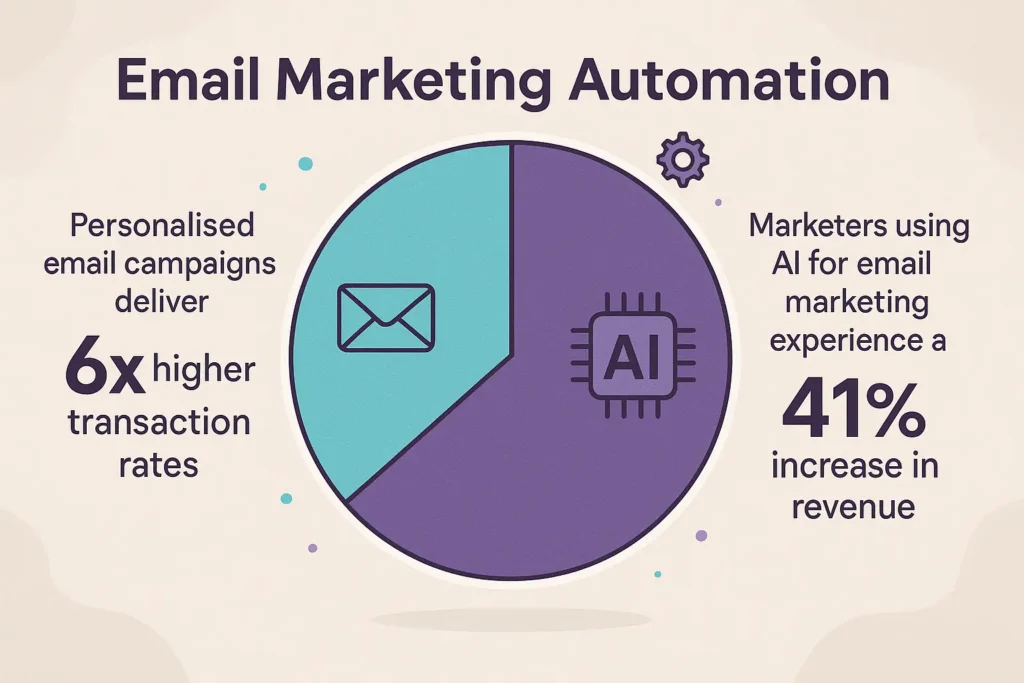
Real-World Use Case
Netflix uses AI-powered email marketing to re-engage users with personalised content recommendations, boosting viewership and retention.
Social Media Listening & Sentiment Analysis
AI tools can analyse billions of social conversations to gauge public sentiment and detect brand mentions.
How AI Helps
AI-powered sentiment analysis can identify whether people feel positively, negatively, or neutrally about a topic, product, or brand, which is crucial for reputation management and campaign planning.
Stats
- Brandwatch reveals that companies using AI-powered social listening improve customer satisfaction by 37%.
- Sprout Social notes that 71% of consumers are more likely to purchase from a brand that responds to them on social media.
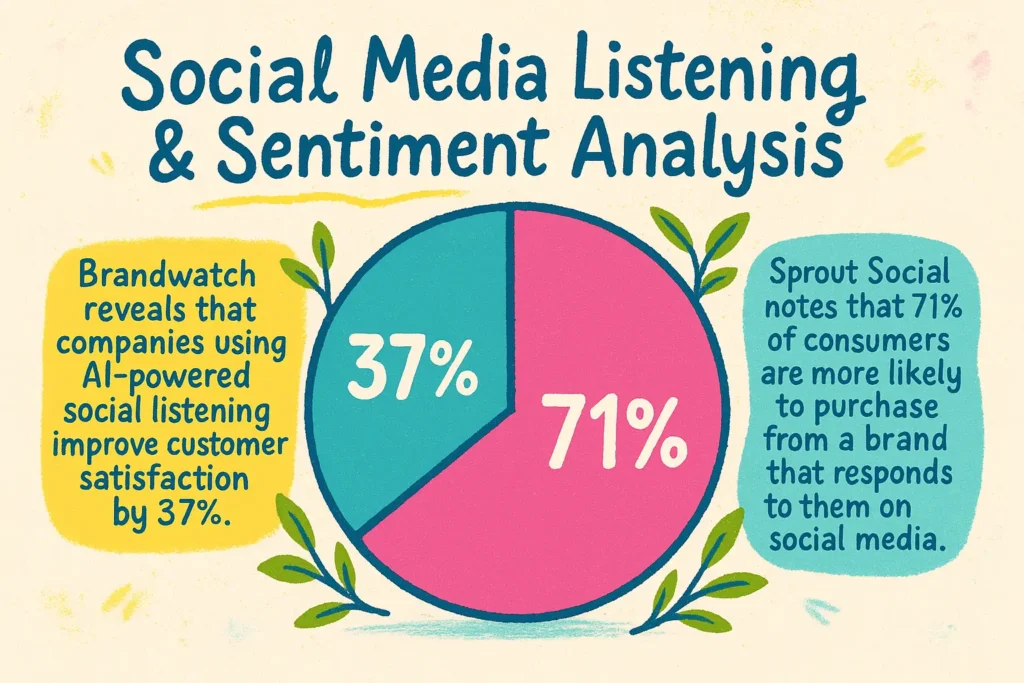
Real-World Use Case
Nike uses AI to monitor brand sentiment across real-time platforms, helping the company adapt its messaging and campaigns quickly.
AI is Not the Future—It’s the Present
AI is no longer a luxury or novelty; it’s a necessity in the modern marketing playbook. From personalisation and predictive insights to automation and real-time optimisation, AI transforms how marketers engage with customers and measure success.
As AI continues to evolve, so will the opportunities for smarter, faster, and more meaningful marketing.


